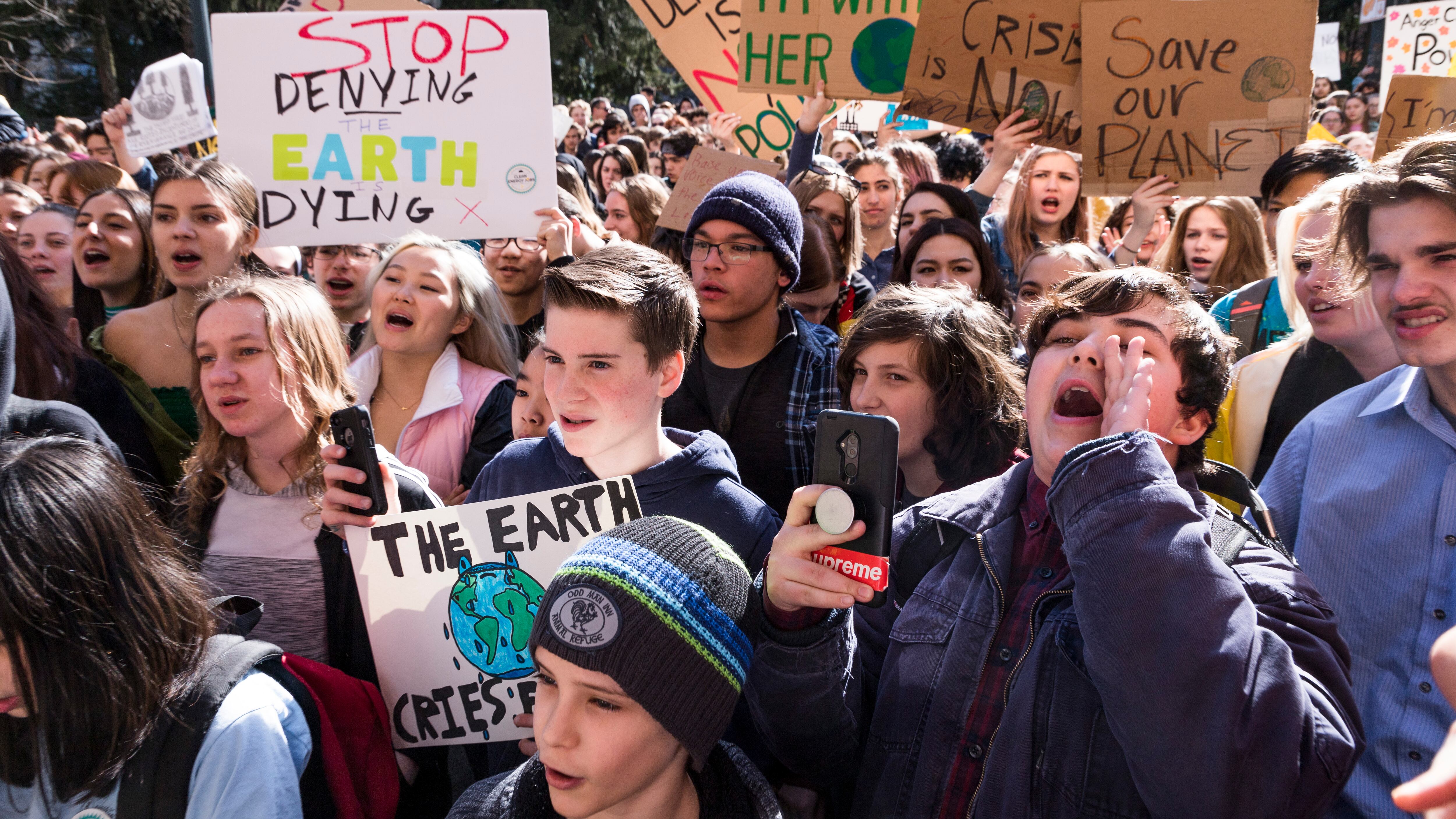Teenage activists will lead a strike in Portland on Friday, Sept. 20, to demand City Hall take action on climate change, joining a series of similar demonstrations worldwide calling on government officials to phase out fossil-fuel infrastructure.
Portland's climate strike is one of the many. The events are inspired by the weekly Friday climate strikes of 16-year-old Swedish climate-change activist Greta Thunberg and those whom she has inspired to do the same.
16-year-old Jaden Winn is one of the Oregon teens organizing the strike. He expects anywhere from 6,000 to 8,000 people to attend.
"We want to have people seeing there are kindergarteners standing next to 80-year-olds in the crowd," says Winn, a junior at Wilsonville High School. "If there was anything we'd like to capture, it's that this is no longer something which separates us by age, but that this a fact of our life and a crisis of our life and that we need to be working together to solve it."
The mile-long strike begins at City Hall at 10:30 a.m. with talks from speakers. At noon, protesters will march across the Hawthorne Bridge and over to the Eastbank Esplanade, by the Oregon Museum of Science and Industry. There, activists are holding a festival from noon to 5 p.m. with climate-justice activist trainings, film screenings and food trucks.
One of the chief demands of the strike's organizers is for Portland City Hall to also consider any potential effects on climate when forming city policy, Winn says. Another demand is for City Hall to formally declare a climate emergency, something that some cities around the world have begun doing, including Austin, Texas; Fort Collins, Colorado; San José, California; and Sydney, Australia, among others.
U.S. Rep. Earl Blumenauer (D-Oregon) joined with Rep. Alexandria Ocasio-Cortez (D-New York) and Sen. Bernie Sanders (I-Vermont) to push for declaring a national climate emergency in July.
"Our government needs to realize that we are the people who will experience the effects of climate change in the future," wrote Grace Curley, another teen organizer of the march, in a statement, "so our voices are some of the most important on this issue. We need to be heard, and we can't afford to wait any longer."
The Sept. 20 climate strike will mark Portland's second in a year. In March, thousands of high schoolers and middle schoolers walked out of school and through the streets of Portland to demand action on climate change from Portland Public Schools.
"We want this to be the largest climate strike history has ever seen," says Winn, also the founder of the Youth Igniting Change, an alliance of teen activists. "That's one of our biggest goals."
Portland teens are the main movers and shakers behind the strike.
Four or five teenagers are leading the strike's organization, Winn says, with around 12 to 15 additional teens helping to plan. About 100 to 200 adults are reaching out to community nonprofits and advocacy groups that are also helping to organize the march, including Portland Climate Strike, the Portland chapters of the Democratic Socialists of America and the Sunrise Movement, 350PDX and the Portland Clean Energy Fund, among others.
In Oregon, strikes and walkouts are also being planned in Hillsboro, Salem, Ashland and Eugene, according to the Climate Strike Oregon website, among other places.
The week after the Portland strike, from Sept. 21 to 28, will be a "week of action," Winn says, when Portlanders can get involved in activism trainings, protests and panels of environmental experts.
"What having a protest like this shows is that there is a mass group of people in the Portland area—nationally and around the world—which is concerned about climate change, which cares about climate change, and which is concerned about protecting our future and creating a sustainable climate for our younger generation," Winn says.
Those interested can RSVP at bit.ly/pdxclimatestrike or check out climatestrikeoregon.org for more info. You can find the event on Facebook here.
